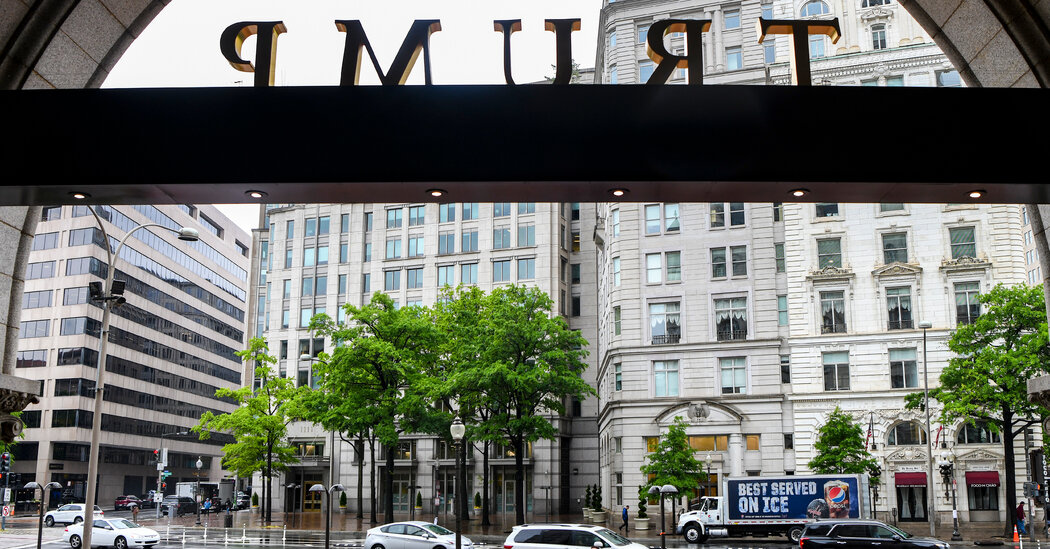
A spokesman for CGI declined to comment.
But since 2020, the hotel has generally seen sparse crowds in its sprawling lobby, including late last week, several days before the closing, when just a few tables were occupied at the lobby bar.
“It is a beautiful property,” said David Lentz of Placentia, Calif., who visited the lobby last week. “Good for him, if Trump is making more money on it.”
But some would-be guests expressed frustration after they received calls telling them their reservations had been canceled. “They are just stiffing everyone,” said Jayson Woodbridge, a California winemaker who had a reservation for a weeklong stay at the hotel to attend his daughter’s graduation in the area.
Last week, Mickael Damelincourt, the longtime manager of the hotel, moved from table to table to greet some of the regulars at the lobby bar, pausing to take photos with several of them in advance of the hotel’s sale. The BLT Prime restaurant at the property had already closed permanently, as had the Ivanka Trump spa, and the hotel itself was no longer taking room reservations.
Just days before the sale closed, the Trump Organization and Mr. Trump’s 2017 inaugural committee agreed to settle a lawsuit filed by Karl A. Racine, the attorney general for the District of Columbia, who had claimed that the hotel had illegally received excessive payments from the inaugural committee, totaling more than $1 million.
The settlement in the civil suit came with no admission of wrongdoing by the Trump Organization, the former president or the inaugural committee.
Those claims were among the many allegations in various lawsuits that Mr. Trump improperly profited from the presidency through payments made to the hotel by, among others, lobbyists and foreign governments. Suits from the State of Maryland and Democratic members of Congress cited the emoluments clauses of the Constitution, which prohibit federal officials from accepting financial benefits from foreign governments without congressional approval.




